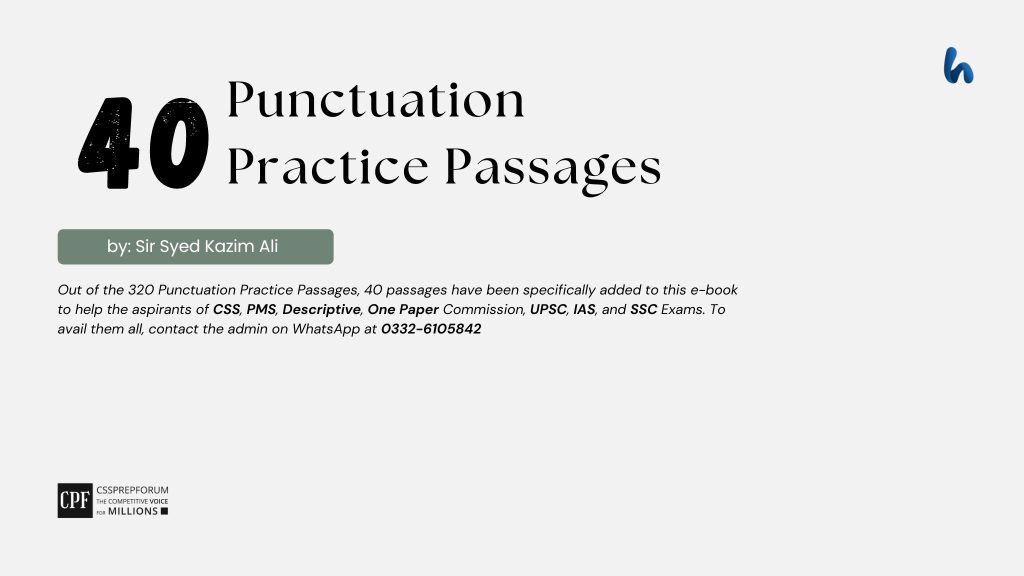Miss Nirmal Hasni, a Sir Syed Kazim Ali student, has attempted the Civil Judge KPK 2009 Five Paragraph Essay “East is East, and West is West, and Never the Twain shall Meet.“ on the given pattern, which Sir Syed Kazim Ali teaches his students. Sir Syed Kazim Ali has been Pakistan’s top English writing and CSS, PMS essay and precis coach with the highest success rate of his students. The essay is uploaded to help other judiciary and competitive aspirants learn and practice essay writing techniques and patterns to qualify for the essay paper.

“East is East, and West is West, and Never the Twain shall Meet.”
Outline
1-Introduction
Despite globalization increasing cultural exchange and bridged Eastern and Western civilization differences through spread of technology, trade, and media, Eastern and Western civilizations still remain fundamentally distinct, as their core philosophies, values, and societal structures have resisted true integration or mutual influence.
2-How have Eastern and Western philosophies remained distinct?
- ✓Eastern philosophy emphasizes collectivism, spiritualism, and harmony whereas Western thought prioritizes individualism, rationalism, and progress.
- Evidence: Confucianism, Taoism, and Hinduism focus on duty, balance, and enlightenment while Western philosophy, from Socrates to Nietzsche, promotes personal freedom, skepticism, and human-centric progress.
- ✓Western nations emphasize democracy, legal rights, and capitalism while Eastern nations prioritize hierarchical order, state authority, and collectivist economic models.
- Evidence: Despite exposure to Western democratic ideals, countries like China, Japan, and Russia have maintained authoritarian or collectivist governance structures.
3- On what grounds do critics argue that globalization does not show cultural blending and influence between East and West?
- ✓Counterargument: Some argue that cultural exchange through trade, technology, and media has led to mutual influence.
- Refutation: However, the superficial adoption of foreign elements, such as Eastern meditation in the West or Western fashion in the East, does not indicate fundamental ideological change.
4-Conclusion

The Essay Begins Below!
Eastern and Western civilizations’ cultural, philosophical, and societal foundations have evolved along distinctly different paths. Rooted in centuries of unique historical experiences, these differences have shaped contrasting worldviews and societal norms. While some argue that globalization has bridged these differences through increased cultural exchange, the reality is far more complex. Despite the spread of technology, trade, and media, the core values and ideologies of the East and the West have remained fundamentally separate. Undoubtedly, Eastern societies often emphasize collectivism, spiritual harmony, and hierarchical order while Western societies prioritize individualism, rationalism, and democratic principles. Thus, even though surface-level cultural elements may appear blended, these civilizations’ deep-rooted philosophies and societal structures continue to resist true integration, reinforcing the enduring divide between the East and West.
To begin the debate on the core difference between Eastern and Western philosophies, Eastern and Western philosophies remain distinct due to their contrasting views on life, society, and the individual. Truly, Eastern philosophy emphasizes collectivism, spiritualism, and harmony, focusing on the interconnectedness of individuals within the larger community and the natural world. For instance, traditions like Confucianism, Taoism, and Hinduism stress duty, balance, and enlightenment, encouraging self-discipline and alignment with universal truths. In contrast, Western philosophy promotes personal freedom, critical thinking, and skepticism toward established norms by boosting individuals’ autonomy and pursuing knowledge through reason. Such as, Western philosophy, from Socrates to Nietzsche, champions individualism, rationalism, and human-centric progress. Therefore, these fundamental differences continue to shape cultural identities, resisting true philosophical integration despite global influences.
Similarly, Eastern and Western civilizations’ political and social systems reflect enduring contrasts shaped by historical and cultural legacies. Western nations often advocate for democracy, legal rights, and capitalist economies, emphasizing personal freedoms, political participation, and market-driven growth. These values mirror the Western focus on individual autonomy and institutional checks on power. However, Eastern societies uphold hierarchical structures, centralized authority, and collectivist economic models. Nations like China, Japan, and Russia, despite their exposure to Western democratic ideals, continue to maintain governance rooted in state control and societal harmony over individual rights. Such persistent differences highlight that, beyond surface-level cultural exchanges, the fundamental principles guiding Eastern and Western societies thus remain primarily resistant to convergence.
On the other hand, some critics argue that globalization has fostered cultural blending between East and West through trade, technology, and media, leading to mutual influence. They point to the global popularity of Eastern practices like meditation in the West and the widespread adoption of Western fashion, entertainment, and technology in Eastern societies as evidence of this cultural exchange. Nevertheless, these examples reflect superficial adoption rather than deep ideological integration. While Hollywood films thrive in Asia and sushi bars flourish in Western cities, the core values underpinning Eastern collectivism and Western individualism remain intact. A 2021 Pew Research study supports this, revealing that cultural values and political ideologies have remained largely unchanged across both regions despite economic globalization. Thus, globalization may promote the exchange of cultural symbols, but it falls short of transforming the foundational philosophies that define Eastern and Western identities.
In summary, despite centuries of exchange and the influence of globalization, the essential differences between Eastern and Western civilizations still endure. Verily, fundamental disparities in philosophies, governance, and societal values reveal that cultural interactions have been more superficial than transformative in these civilizations. To elaborate, Eastern cultures prioritize collectivism, spiritual balance, and hierarchical structures while Western societies celebrate individualism, rational thought, and democracy. Therefore, these enduring distinctions reaffirm although the East and West may engage through trade, technology, and media, their core beliefs and ways of life remain parallel, never indeed converging, just as Kipling’s words suggest.

Click on Any to Start Reading



FAQs About Sir Syed Kazim Ali

CSS Solved Past Papers’ Essays
Looking for the last ten years of CSS and PMS Solved Essays and want to know how Sir Kazim’s students write and score the highest marks in the essays’ papers? Then, click on the CSS Solved Essays to start reading them.
CSS Solved Essays
CSS Solved General Science & Ability Past Papers
Want to read the last ten years’ General Science & Ability Solved Past Papers to learn how to attempt them and to score high? Let’s click on the link below to read them all freely. All past papers have been solved by Miss Iqra Ali & Dr Nishat Baloch, Pakistan’s top CSS GSA coach having the highest score of their students. General Science & Ability Solved Past Papers











